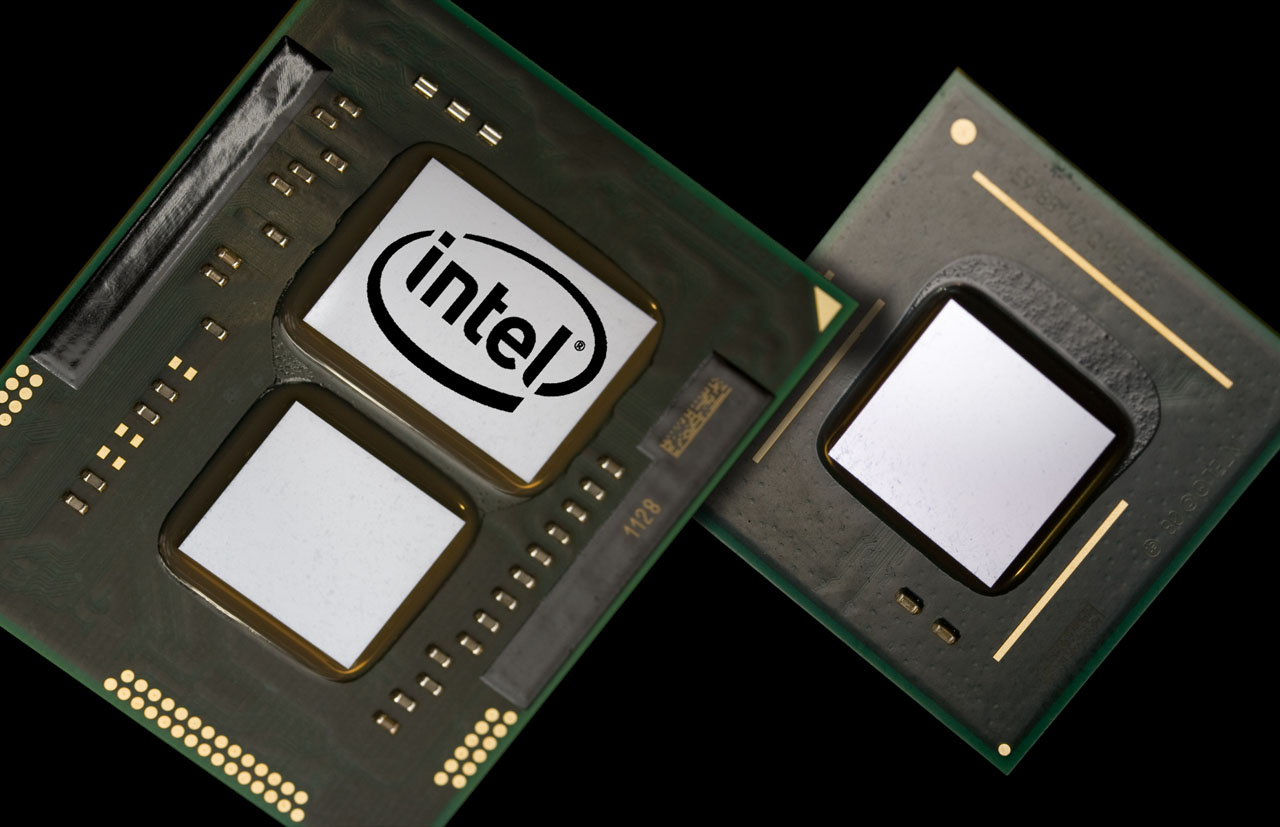Intel’s Mobile Core i5 And Core i3: Arrandale Is For The Rest Of Us
Mobile Chipsets, Refreshed
Along with its 11 new mobile processors, Intel is also launching a quartet of platform controller hubs. From lowest to highest, in order of pricing: HM55, HM57, QM57, QS57. Add in the PM55 already being used to support Clarksfield processors and you have a total of five mobile chipsets from which to choose in the current-generation Calpella platform.
Given the degree of integration on the processor side (leaving relatively little for core logic to handle), the differences between these five SKUs are fairly subtle, so let’s start with yet another chart and break them down from there.
| Header Cell - Column 0 | QM57 | QS57 | HM57 | PM55 | HM55 | |
|---|---|---|---|---|---|---|
| Firmware Package | 8MB | 8MB | 8MB | 4MB | 2MB | 4MB |
| AMT 6.0 | Yes | Yes | - | - | - | - |
| Remote PC Assist For Consumer | - | - | Yes | - | - | - |
| Identity Protection | - | - | Yes | - | - | - |
| Rapid Storage 9.5 | Yes | Yes | Yes | Yes | Yes | Yes (AHCI-only) |
| Anti-Theft | Yes | Yes | Yes | Yes | - | Yes |
| FIS-Based Port Multiplier Support | - | - | - | - | - | - |
| USB 2.0 | 14 | 14 | 14 | 14 | 14 | 12 |
| 2.5 GT/s PCI Express | 8 | 8 | 8 | 8 | 8 | 6 |
| SATA 3 Gb/s | 6 | 6 | 6 | 6 | 6 | 4 |
| Legacy PCI | 4 | 4 | 4 | 4 | 4 | 4 |
| Integrated Graphics w/ PAVP 1.5 | Yes | Yes | Yes | Yes | - | Yes |
Right off the bat, we see that the QM- and QS- models are intended more for businesses than consumers. AMT 6.0 with Remote PC Assist is used by IT administrators and VARs to remotely manage and secure hardware assets—a great feature if you’re the one responsible for keeping tabs on pricey notebooks, especially in larger organizations where inventorying equipment is particularly difficult.
HM57 and HM55 (like H57 and H55 on the desktop) are more relevant to the broader market of consumers.
HM55 includes 12 USB 2.0 ports, six 2.5 GT/s PCI Express links, four SATA 3 Gb/s ports, support for four PCI devices, Anti-Theft technology, and the AHCI component of Intel’s Rapid Storage technology suite (not the software-based RAID support). Of course, Intel also adds its management engine, enabling the protected audio/video path needed for Blu-ray video playback and high-def audio bitstreaming via integrated graphics.
HM57 is available in two different forms. Both step up with 14 USB 2.0 ports, eight PCI Express links, six SATA ports, up to four PCI-based peripherals, and the same protected audio/video path. The “lower-end” version employs up to a 4MB firmware package, while the “higher-end” implementation uses as much as 8MB of space. The larger firmware makes room for Identity Protection technology and Remote PC Assist technology for the consumer space—a version of what Intel enables on the QM57 and QS57—allowing befuddled home users to hit a button, key in a code, and get remote support from a remote tech offering service.
As you’ve no doubt already realized, all four of these platforms are very similar from an I/O standpoint, and differentiated by turning switches on various value-adds on and off. Fair enough—that’s the way it’s destined to be anyway as an increasing amount of technology is integrated into the processor itself.
Get Tom's Hardware's best news and in-depth reviews, straight to your inbox.
Current page: Mobile Chipsets, Refreshed
Prev Page On-Package Graphics: Arrandale Versus Clarkdale Next Page Asus' K42F Calpella-Based Notebook-
burnley14 Well played, Intel. You've been knocking it out of the park lately, keep up the good work.Reply -
I'm looking forward to getting an HP laptop with the Arrandale Core i5 processor in the near future.Reply
-
It's going to be interesting to see the performance/battery time of the LM and UM processors as I'm in the market for a thin-and-light myself.Reply
Performance is good but I'm hoping for a viable update to the CULV offerings of yesterday. -
Computer_Lots Looks like there are finally some replacements for the Atom, at least in efficiency anyway. Too bad the price is currently too high for the UM versions of these processors to make their way into netbooks. I would guess that even the i5-520UM would destroy the Atom in every benchmark, except maybe power consumption.Reply -
HansVonOhain C2D was one of the longest living platforms. But newer tech will replace slower processors.Reply
Keep it up intel. I do hope that AMD will release some new chips that will be able to compete with intel offerings. -
jasperjones ^^^ true that. arrandale will further diminish AMD's role in the mobile processor market. and there's nothing coming up before may.Reply -
Luscious Chris, the dv4 series from HP has a 12-cell extended battery available as well rated for 94Wh 2.2A. Once HP makes the transition to Arrandale, all else being same, you can expect the dv4 to hit 8-10 hours easy.Reply -
cangelini Thanks for the tip Lucious. I didn't have the higher-capacity battery available to test, but I'd absolutely love to see 8-10 hrs. real-world from an Arrandale-based machine.Reply -
Reynod Good bye NVidia ...Reply
That chops them completely out of the mobile graphics market for the masses ... Intel will pay the RIGHT OEM's some "adjustment" just to make sure their "Strategy" is right to ensure AMD's mobile market is thin and restricted to the backwaters of Bejjing.

